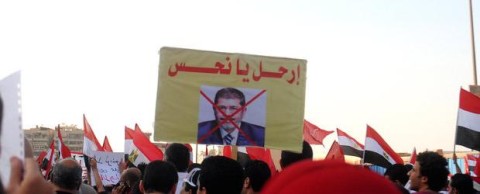Islam and democracy
One of the great questions in the Middle East has been whether Islamism—the belief that Islam should guide social and political life—is compatible with a pluralistic democracy. Mohamed Morsi and the Muslim Brotherhood answered that question in Egypt with a resounding no. After being elected president in 2012, Morsi invoked emergency powers to pursue his agenda, rammed through a constitution and sidestepped democratic processes. Along the way, he did nothing to address Egypt’s social and economic problems or allay fears that he would impose a radical Islamist agenda.
Christians were among the many Egyptians who last month celebrated Morsi’s ouster at the hands of the military. Morsi’s rule had emboldened attacks on Christians over the past year. Christian institutions suffered yet again in the aftermath of Morsi’s fall, serving as convenient scapegoats for his outraged supporters. Scores of churches were looted and burned. No wonder Christians, who constitute a small minority of the population, see army general Abdel Fattah el-Sisi as their protector and the restorer of order.
Almost three years after a massive popular uprising overthrew Hosni Mubarak, a brutal military-backed dictator who persecuted his opponents and violated human rights, Egyptians find themselves again ruled by a brutal military dictator who persecutes his opponents and violates human rights. The revolution has come full circle. The prospects for genuine democracy in Egypt are more remote than ever. The liberals are severely weakened. The leaders of the Muslim Brotherhood and other Islamist groups—if they escape jail—are likely being radicalized by the military crackdown and less inclined than ever to seek power by democratic means.
With hopes for democratic reform dashed for now in Egypt, it’s helpful to remember that other models of Islamic politics exist. Our cover story this week explores the case of Turkey. That country has its own history of xenophobic nationalism and authoritarian rule, but it has also built a vibrant economy and a strong middle class. It is an overwhelmingly Muslim country with secular institutions of government. The views of conservative Muslims have gained increased prominence in Turkish politics in recent years, but the nation seems committed to a secular government and rule by the ballot box. The protests that rocked the country this past summer over a proposed park in Istanbul were met with a harsh response that revealed the ruling party’s authoritarian streak. But the protests themselves revealed the nascent strength of the nation’s civil society.
We can’t assume that the story of Islam and democracy will have a happy ending in the Middle East. But there are different versions of the story, and the story is still being written.




